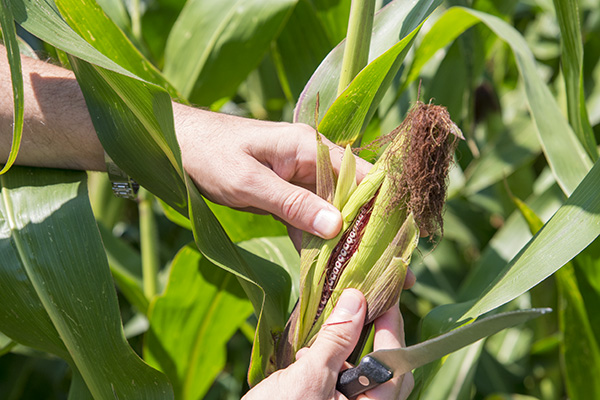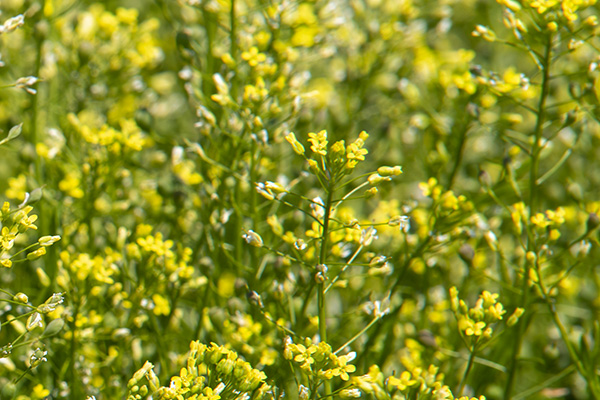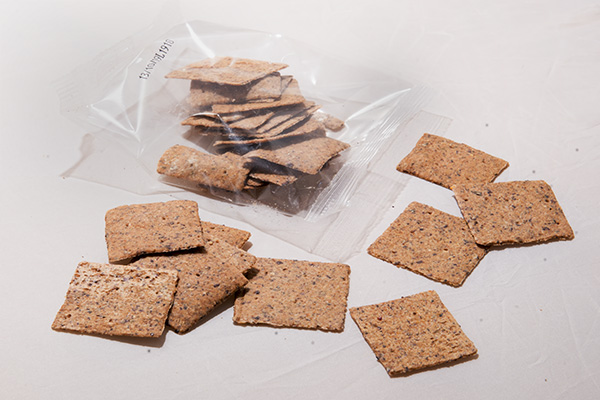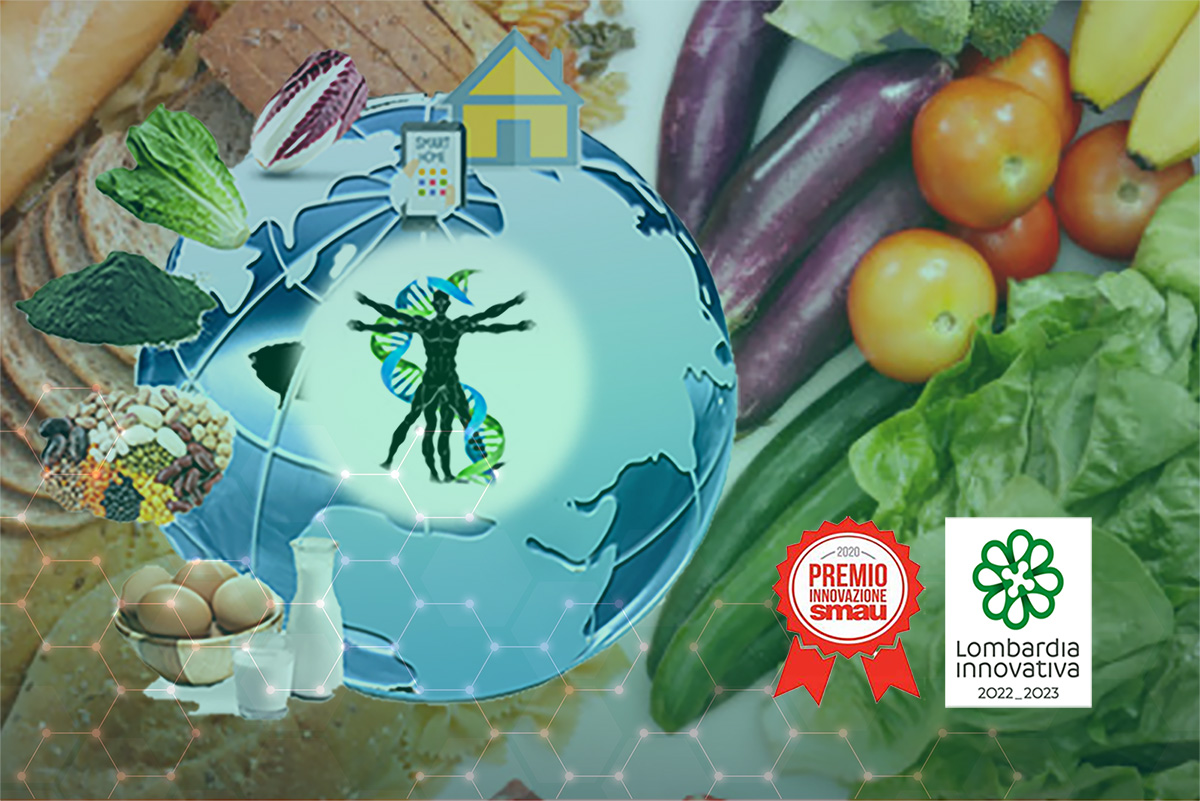FOOD NET: FOOD SOCIAL SENSOR NETWORK
FOOD NET, a Smart Cities and Communities project, has been aimed to:
- identify and analyze the nutritional needs of specific consumer targets,
- promote process and product innovation of agri-food companies through the creation of infrastructures that allow to create truly effective functional foods and
- implement the quality of life and nutritional status of citizens through functional foods, nutritional models and educational processes aimed at improving lifestyles.
The project, as part of the Smart Living strategies related to food, has been realized to respond to the needs of the city and its inhabitants by creating foods that are more responsive to the needs of the consumer and by affecting the management of the territory (food policy) in order to guarantee access to quality food. Food Net project has been realized as part of the CALL-HUB for Research and Innovation of the Lombardy Region and included 9 SMEs and 3 Universities.
PIGMENTED
CORN
CORN
Corn is a monoculture with large extensions and a large production of waste related to the vegetative portions such as the stem and the cob. FLANAT has operated to genetically select (in collaboration with UNIMI) pigmented corn varieties, rich in antioxidant compounds even in the waste portions. Experimental work, both in the laboratory and in the field, has made it possible to obtain the fruit and other by-products with peculiar nutritional and health properties. The flour, rich in antioxidant compounds and fibers and low in saturated fatty acids and with a low glycemic index, has been used to make functional crackers. The cob, as a source of antioxidants, was used as a raw material by identifying and standardizing the extraction method of the bioactive compounds of interest. The qualitative and quantitative analysis showed that the extract is characterized by a rich phytocomplex and related anthocyanin fraction.
The hypoglycaemic and antiglycant activity of the extract was tested and emerged the inhibitory capacity of α-glucosidase, the main enzyme responsible for carbohydrate metabolism, contributing to the reduction of post-prandial glucose levels and the inhibition of advanced glycation products.
CAMELINA
SATIVA
SATIVA
FLANAT followed the field cultivation of Camelina sativa to study the production performance. The selected variety has quantities of alpha-Linolenic acid (ALA) higher than 0.6 g/100 g of product (Reg. (EC) 116/2010), allowing the health claim to be applied to Camelina sativa oil "contributes to the maintenance of normal blood cholesterol levels".
Tests carried out by the University of Salerno with simulated salt stress showed higher values in the oil in all fatty acid categories including totals of monounsaturated, polyunsaturated and saturated fatty acids. This result indicates that not only Camelina sativa is a plant that requires little agronomic care but is also able to thrive in marginal soils with high salinity, making it a suitable plant to occupy unexploited agricultural areas.
The tests conducted on the oil pressing waste, the cake, have highlighted possible further developments aimed at the extraction of functional nutrients. In particular, the presence of glucosinolates, proteins and fibers were highlighted.
CLINICAL
TRIAL
TRIAL
A double-blind randomized controlled trial (RCT) with the aim of evaluating the nutritional efficacy, in modulating the low-grade inflammation that physiologically characterizes the elderly, of thin crackers with camelina oil and Moradyn corn.
The participants, after signing the informed consent, were randomly divided into two groups that consumed two 35g packets of crackers/day for 12 weeks:
1) INTERVENTION GROUP who consumed crackers enriched with Camelina oil daily.
2) PLACEBO GROUP who consumed crackers with corn oil daily.
To test the efficacy of the product, all study participants were evaluated before the delivery of the products to be consumed (baseline time, T0) and at the end of the consumption of the products (after 12 weeks, T1). The evaluations mainly focused on the assessment of nutritional status and inflammatory status with blood chemistry tests
The comparison between the two groups, however, showed an improvement in the lipid profile and glycated hemoglobin in the intervention group.
LOMBARDY
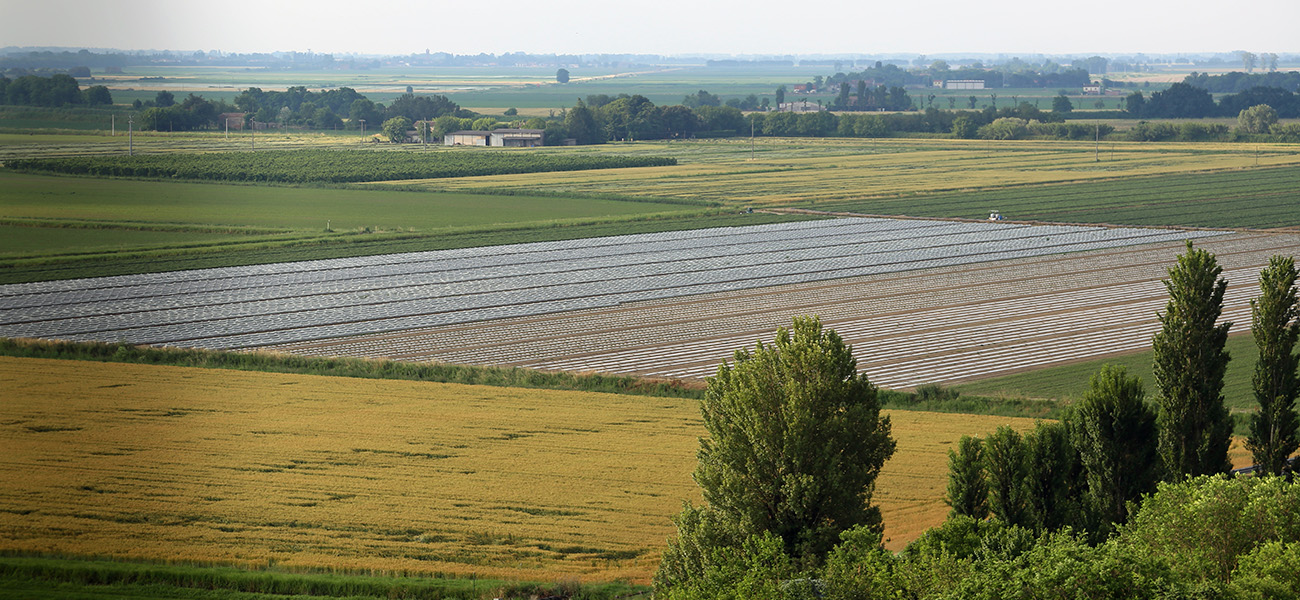
FLANAT, with the aim of integrating its vision into the Lombard reality, strongly believing in the territory, has chosen plants from the past for the FOODNET Project and has developed them in a present of important changes to project them towards a future of sustainability and health.
The matrices object of the project have been selected for their unique biological characteristics with the aim of developing new agricultural practices for the Lombard territory. Pigmented corn, developed in collaboration with UNIMI, and Camelina, a plant that is easy to grow but still little known in our area. The innovation lies in the use of these plants, which are little exploited, and to broaden their spectrum of use, exploiting both the primary product (fruit) and the processing waste (the cob for the corn and the cake for the camelina).
As part of the FOODNET Project, FLANAT has developed a "from seed to shelf" cultivation and processing process in which the different phases, from the cultivation carried out in Lombardy, in collaboration with a farm in Casalasco (Cremona), up to to the development of a finished product, the cracker, have been enhanced with LCA analyses. The values obtained confirm that the exploitation of new resources, with modern processing systems, considerably reduce the costs of agricultural processing, opening up new developments both for the territory and for the agro-food processing industry.
In line with the 2030 Agenda for UN development, an increase in the production of these new botanical species is expected, making the process an integral and valuable part of the agricultural and production processes of the Region to all intents and purposes. FLANAT's commitment to pursuing these objectives has already found ample confirmation in the continuation of cultivation and processing by local companies interested in food production. Further activities are underway aimed at improving the varieties, both from the point of view of greater yield and adaptability to the Lombard territory

2017-2021


